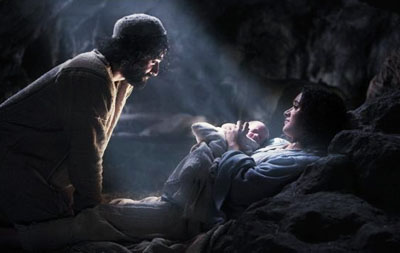December 2010 - Vol. 45
Excerpted from a Christmas Day sermon preached by Lancelot Andrewes before King James I of England in 1611
This was his beginning. Follow him farther, if any better afterward; what flesh afterward? In cold and heat, hungry and thirsty, faint and weary. Is his end any better? that makes up all; what flesh then? Black and blue, bloody and swollen, rent and torn, the thorns and nails sticking in his flesh; and such flesh he was made. A great making certainly, and much to be made of. To have been made head of Angels had been abasement; to be less than the Angels is more; but, to be newest of living things, “in worst case of all men,” nay, “a worm and no man.” So to be born, so arrayed, and so housed, and so handled-there is not the meanest flesh but is better. So to be made, and so unmade. To take it on, and lay it off, with so great indignity: weigh it and wonder at it that ever he would endure to be made flesh, and to be made it on this manner. What was it made the Word thus to be made flesh? “Flesh l would never have been brought to it.” It was God, and in God nothing but love. Good hope we now have that he being now flesh, all flesh may come to him to present him with their requests. Time was when they fled from him. For since he dwelt among us, all may resort to him – yes, even sinners – and of them it is said, “he receives them, receives them even to his table.” A second hope, that seeing he has made our flesh his tabernacle, he
will not suffer this of ours – the same with that of his – to fall down
quite and come to nothing; the same he dwells in himself not to perish
utterly; but repair it again and raise it out of the dust. So that “our
very body may rest in hope,” to be restored again, and “made like to his
glorious body.”
[Lancelot Andrewes (1555–1626) was a Church of England clergyman and scholar during the reigns of Queen Elizabeth I and King James I. During King James' reign, Andrewes served successively as Bishop of Chichester, Ely, and Winchester, and oversaw the translation of the Authorized Version (or King James Version) of the Bible.] . |
. | |
|
publishing address: Park Royal Business Centre, 9-17 Park Royal Road, Suite 108, London NW10 7LQ, United Kingdom email: living.bulwark@yahoo.com |
. |
